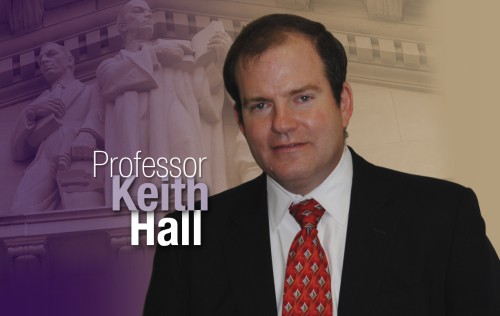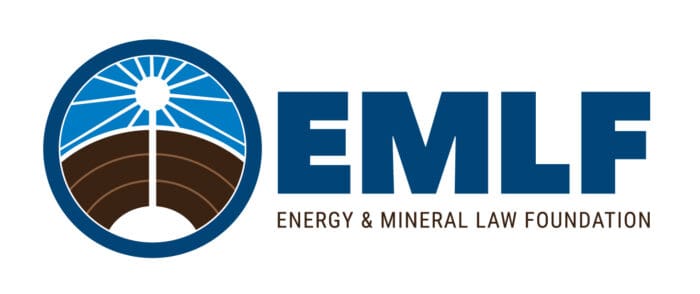Keith B. Hall
LSU Law School
In 2022, the Shelby County Board of Supervisors (“Shelby County Board”) enacted Ordinance No. 2022-4 in response to the plans of Summit Carbon Solutions, LLC (“Summit”) to develop an interstate network of CO2 pipelines, part of which would pass through Shelby County, Iowa.[1] The planned network would involve more than 650 miles of pipelines in five states, including Iowa. The network would carry CO2 captured at thirty-one locations, including twelve ethanol and fertilizer plants in Iowa. The pipeline network would pass through thirty of Iowa’s counties.
State statutes in Iowa delegate authority over pipelines to the Iowa Utilities Board (IUB). As part of the process required to obtain approval for the portion of its pipeline network planned for Iowa, Summit held information meetings in the thirty Iowa counties through which its planned pipeline network would run. Summit then filed a Petition for a Hazardous Liquid Pipeline Permit with the IUB.
While Summit’s permit application with the IUB was pending, some residents of Shelby County submitted a petition to the Shelby County Board, requesting that it enact an ordinance to regulate pipelines. The Shelby County Board referred the petition to the Shelby County Planning and Zoning Commission in August 2022. The Commission considered the issue and later recommended that the Shelby County Board adopt an ordinance to govern hazardous liquids pipelines. The Shelby County Board did so in November 2022, enacting Ordinance No. 2022-4.
This Ordinance explicitly referred to Summit, asserting that a rupture of its pipeline “could threaten the health and lives of county residents.” Ordinance No. 2022-4 provided that anyone seeking to operate a pipeline within Shelby County must first apply for a “conditional use permit.” The permit application must include a copy of the person’s complete application to the IUB, maps indicating the pipeline route, an emergency response and hazard mitigation plan, a template of a proposed agreement that the person would use in attempting to negotiate for pipeline easements, certain fees, and other information.[2] The ordinance also prohibited local landowners from entering easement agreements with a pipeline company unless the landowners first pays a fee to the County and obtains their own conditional use permit.[3] In addition, Ordinance No. 2022-4 imposed certain obligations to restore the land and remove pipelines at the end of the life of the CCS facility. Finally, Ordinance No. 2022-4 imposed setback requirements. Some of the setback distances were large—such as at least half a mile from certain locations, at least one-quarter of a mile from others, and at least 1,000 feet from still others.[4]
On November 15, 2023, the plaintiffs filed suit against the Shelby County Board in the United States District Court for the Southern District of Iowa. They asserted in their complaint that Ordinance No. 2022-4 is preempted by the federal Pipeline Safey Act and by Iowa Code § 479B, which gives the IUB authority to issue permits approving the construction of pipelines.[5] The parties later agreed to a temporary restraining order to bar enforcement of the Ordinance until the court held a hearing and ruled on a motion for a preliminary injunction. The court conducted that hearing in March 2023, and in July 2023 the court issued its decision, granting the preliminary injunction sought by Summit to enjoin enforcement of the Ordinance.[6]
The court’s opinion explained its reasoning. The court noted that, in 1978, Iowa amended its Constitution to grant home rule authority to local governments. This expanded the authority of local governments, which previously could not regulate on a subject unless they had been delegated specific authority to do so. Under home rule authority, however, local governments were given authority to enact ordinances on any subject they choose, unless a state statute denies them authority to regulate on that subject.
A state statute can deny this authority “in an express or an implied manner.”[7] Express preemption occurs when the state legislature expressly prohibits local regulation.[8] An implied preemption occurs when the legislature regulates a subject in a manner that “demonstrate[s] a legislative intention that the field is preempted by state law” or when a local ordinance purports either to prohibit an act permitted by a state statute or to permit an act prohibited by state statute.[9]
The Shelby County ordinance’s setbacks would make it difficult or impossible to route a pipeline that had been expressly authorized under state law, so those requirements were preempted. The local permitting requirements were preempted because the requirements built into state law suggested that the legislature had not contemplated a role for local governments in the pipeline permitting process. The ordinance’s prohibition on landowner’s entering agreements with pipeline companies unless the landowners first obtained conditional use permits was also invalid under implied preemption.
[1] Couser v Shelby County, 2023 WL 4420442 (S.D. Iowa 2023). William Couser was one of two plaintiffs, with Summit being the other. Mr. Couser does not reside or own land in Shelby County. He resides in Story County, Iowa and owns a feed lot that produces corn that he sells to a company that uses it to make ethanol. Couser asserts that, if a CCS project is developed in Iowa, and captures CO2 from the ethanol refineries there, he will be able to sell this corn at a higher price because there will be increased demand for ethanol that has a lower carbon footprint. Further, he asserted that Shelby County’s ordinance would prevent development of CCS, thereby causing him injury. The court concluded that this alleged injury was too speculative and that Couser therefore lacked standing to sue. Id. at *9. The court held, on the other hand, that Summit had standing. Id. at *8.
[2] Id. at *2.
[3] Id. at *3. The Shelby County Planning and Zoning Commission later sent letters to some landowners who had granted easements to Summit, threatening the landowners with fines of up to $750 per day, unless the landowners somehow terminated the easement agreements that they already had granted. Id. at *4.
[4] Id. at *4.
[5] Id. at *4.
[6] Id. at *4.
[7] Id. at *5.
[8] Id. at *5.
[9] Id. at *5. Notably, this preemption scheme for determining whether state law preempts local law is similar to that used to analyze whether federal law preempts state or local law.

Keith B. Hall
Professor, LSU
Director of the Energy Law Center; Director of the Mineral Law Institute and Professor of Law at Louisiana State University.
